Dear WesleyNexus-Colleagues,
The spiritual life is indeed a life of struggle; but it is also a life of well grounded hope. Hope is grounded in freedom, and freedom is grounded in all the high purposes and powers of spirit, human and divine. The last word of spirit is Victory. Edgar Sheffield Brightman
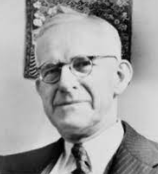
For nearly four decades, Edgar Sheffield Brightman was the face of Boston personalism as Borden Parker Bowne Professor of Philosophy at Boston University. We begin this month’s newsletter highlighting a recent paper by Randell Auxier of Southern Illinois University. In this paper, Auxier presents the history of personalism and the general principles that define it. Though not generally known, personalism has had a significant impact on Methodism in the United States whose echoes can still be heard in the writings of theologians, ethicists, and philosophers.
In this issue you also will find…
- Remembering Boston Personalism by Rick Barr
- Arctic Sea Ice and Indigenous Peoples with Dr. Henry Huntington
- Review: Oord, Thomas, 2022. Pluriform Love: An Open and Relational Theology of Well-Being By Maynard Moore
- Living off the Spectrum by Jim Miller
- Faith & Science 2022: Biologos Conference
- In memory of Rev Dr. Walter Shropshire
- In Our DNA: J. Wentzel van Huyssteen By Rick Drew Miller
- Ancient DNA helps reveal social changes in Africa 50,000 years ago
- Scientists have created the first-ever worldwide family tree By Grant Currin
May you find hope in these difficult days.
Thanks go out to our generous contributors. We encourage you to share comments, articles and insights that will help us all weather these difficult times.
Rick, Maynard, and the rest of the WesleyNexus team
*******************************************************************************
Remembering Boston Personalism by Rick Barr
Covid continues to affect life across the world, including having a significant impact on religious institutions and practices. The United Methodist Church is no exception. It was recently announced that the General Conference, already postponed from 2020, will again be delayed until 2024. This unfortunately will continue to drag out the inevitable split within the church. The traditionalists are determined to continue defining what the split means by creating structures for what they call the Global Methodist Church. In a conference held in January, David F. Watson addressed the New Methodist Summit with his understanding of what the Global Methodist Church affirms. With the address, Watson targeted particular criticism at liberal theology with specific emphasis on the founder of Boston Personalism, Borden Parker Bowne. Watson states that “we could point to the disproportionate representation of liberal theology within Methodist seminaries, beginning with the colossal influence of Borden Parker Bowne, as a corrosive development in the history of our tradition”. This is as unfortunate as it is ungracious. Boston Personalism provided an intellectually and morally astute interpretation of reality that grounded decades of scholars and pastors with the intellectual tools needed to address the modern world.
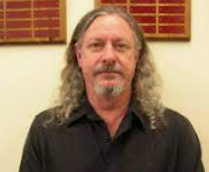
In a recent article, Dr. Randall Auxier has provided an outline of the Boston Personalism focusing on two universities, Boston and Harvard. In the article, Auxier covers the historical background of personalism, significant persons of influence and highlights the similarities and differences between the two Boston schools. Boston University was founded as a Methodist University and is of particular interest to Methodists. Auxier provides a list of the basic principles that define personalism as developed by Bowne and subsequent generations of Boston University Personalists. They are:
- The idea of person is the clue to the structure and meaning of the universe.
- Time and space are phenomenal, experienced by both God and humanity, but differently, allowing the development of the human person.
- Time is the moving picture of eternity.
- The meaning of the universe is by, of, and for persons.
- There are human, super-human, and sub-human persons.
- Practical life is the source of value and meaning in all life.
- Individual life, i.e., the “soul,” is social, but is an ultimate value; the individual is the “person” in the most concrete and excellent sense.
- God, or the divine, is personal in as much as we can understand and respond to deity.
- The impersonal does not exist, but the degradation of personal existing is real, and thus the universe is tragic, even for God.
Developments in mainstream theology have clarified, augmented and corrected aspects within the perspective but echos can still be found within process theology, liberation theology, feminist theology, theology of ecology and more recently, open and relational theology. Far from being corrosive, Boston Personalism has contributed an important theological perspective that has enriched American Methodism for over 100 years.
Auxier closes by stating that “the American personalists took themselves to be doing more good than harm, both philosophically and theologically. Their effort to reconcile philosophy and theology with modern life is clear. Being unattached to particular forms of dogma, they reinvented Christianity around a view of the person, rather than adapting the modern view of the person to an older religious framework. That might be the very definition of heresy, but it did not trouble the American personalists, nor was it their aim to criticize the Church. They aimed to save what was essential in the teachings of Christianity and religion in general, and did so to the best of their ability.”
As the Methodist Church goes through the process of disuniting, it will be prudent to remember the Boston personalist tradition. They tackled the big issues of the day with integrity, learned from mistakes and omissions and addressed the big issues of their day in philosophy, theology, and Christian ethics.
Auxier’s article can be found here:
THE HISTORY AND PRINCIPLES OF AMERICAN PERSONALISM
Randall Auxier presented a lecture at Boston University celebrating the 50th anniversary of the Institute for Philosophy and Religion with the provocative title :The World is a Person. It can be found here: https://www.bu.edu/ipr/video-auxier/
****************************************************************************************************
Word & Wonder Wednesdays

New, online small group beginning Wednesday, March 16, 2022 7:30 to 8:30 PM via Zoom
This group will meet weekly via Zoom to explore topics at the intersection of faith & science. If you’re looking for a conversation on theology, the Bible, science, and life’s biggest questions, then this is the group for you. Join us weekly or drop in as your schedule allows.
To register: https://ccumc.churchcenter.com/groups/life-group/word-and-wonder-wednesdays
****************************************************************************************************
Arctic Sea Ice and Indigenous Peoples
with Dr. Henry Huntington
The program will begin at 4:00 PM CDT, 5:00 EDT, 2:00 PM PDT, 10:00 PM BST.
March 23, 2022
Hosted by The Institute on Religion in an Age of Science
Presentation Overview:
The loss of arctic sea ice is both a highly visible symbol of global warming and a cause of further warming. Plus, changing sea ice patterns affect weather throughout the Northern Hemisphere. At the same time, the headlines often skip over the details of what sea ice loss means to people near and far. For Arctic Indigenous peoples, sea ice is home, a platform for travel and for gathering food to share with one’s family and community. This talk will review changes in Arctic sea ice and then explore the implications for Arctic societies and for the world as a whole.
About the March 23rd presenter:
Dr. Henry Huntington is the Arctic Science Director at Ocean Conservancy, and also the lead author of the Alaska chapter of the next National Climate Assessment. He has over 30 years’ experience in Arctic research and conservation.
To register for the February 15 webinar:
https://us02web.zoom.us/webinar/register/WN_Hi6_xgJISmuE26d-RG4nQw
****************************************************************************************************
Review: Oord, Thomas, 2022. Pluriform Love: An Open and Relational Theology of Well-Being.
By Maynard Moore
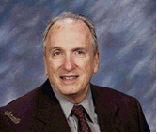
Tom Oord has a lot to say here that furthers our thinking as we maneuver our way through so many traditional assumptions, shallow theologies, and the materialistic scientism in the 21st century. We constantly encounter religious detractors in the academy and in everyday life, not to mention the sterile claims in the churches that are founded in classical theism. This book is a valuable addition to the ongoing dialogue that is the essence of a living faith. More importantly, this theological perspective, which Oord calls open and relational theology, provides a solid grounding for our personal ethical commitments and a broader social ethic in the days ahead.
https://wesnex.org/wp-content/uploads/2022/03/Pluriform-Love-Moore2.pdf
****************************************************************************************************
Living off the Spectrum by Jim Miller
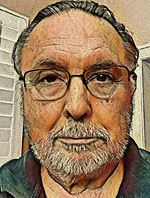
Today, we seem to be locked into viewing life in a linear fashion or worse in terms of polar opposites. Our social and cultural conflicts, seem to me, more issues of a lack of imagination than conflicts over primal values. When I hear passionate arguments of advocates for different points of view, I am inclined to want to quote Mercutio from Shakespeare’s Romeo and Juliet:
“A plague o’ both your houses!”
Or perhaps more generously what Hamlet says to Horatio:
“There are more things in heaven and earth … than are dreamt of in your philosophy.”
This last quote from Shakespeare is eerily similar to that of J.B.S. Haldane:
“The universe is not only queerer than we imagine, it is queerer than we can imagine.”
Allowing our creative imagination to intercede in the midst of our conflicts might not only nurture a sense of humility but might lift us beyond the limitations of our linearity that we might live more fruitfully off our self-imposed spectrums.
****************************************************************************************************
Faith & Science 2022: Biologos Conference
San Diego
March 25 – 26, 2022

Faith & Science 2022 is the third BioLogos Conference. So what is BioLogos? Well, it all started with a scientist and a book. Francis Collins, the physician and geneticist who led the Human Genome Project, wrote the best-selling book, The Language of God, in which he tells his journey from atheism to Christian belief—showing that science is not in conflict with the Bible, but actually enhances faith. The outpouring of response to the book showed the need for virtual and in-person meeting places to better explore science and faith more thoroughly, and he launched BioLogos in 2007.
In that spirit, the Faith & Science conference is a gathering of Christians—including pastors, scientists, and anyone else with big questions about topics like origins, human identity, and the climate crisis. We’ll discover, worship, and fellowship together as we explore God’s Word and God’s World.
https://conference.biologos.org/about-faith-and-science-conference/
****************************************************************************************************
In memory of Rev Dr. Walter Shropshire
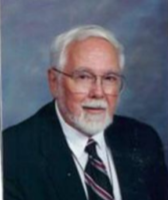
Last month WesleyNexus lost one of its guiding lights and a dear friend. Rev. Dr. Walter Shropshire Jr. was a United Methodist pastor retiring in 2003 from full time ministry at Foundry United Methodist church in Washington, D.C. where he served for twelve years as Minister of the Parish, an associate pastor position on a large staff serving a 1400 member congregation. He worked for 32 years as a Ph.D. research physicist at the Smithsonian Institution before retiring as Assistant Director of the Environmental research Center in 1986. He graduated from Wesley Theological Seminary in 1990 with a Master of Divinity degree, summa cum laude. He retired May 2008 from teaching part-time as an adjunct professor at Wesley Theological Seminary courses on science and religion and the practice of ministry and mission with student pastors serving small rural congregations. He also helped kick off WesleyNexus, Inc., becoming its first president. Under his leadership, WesleyNexus defined our mission, developed a presence on the internet and began promoting science and religion discussion programs around the Washington DC area.
He is a native Washingtonian, married to Audrey Shropshire with three children and six
Grandchildren.
****************************************************************************************************
In Our DNA: J. Wentzel van Huyssteen By Drew Rick-Miller
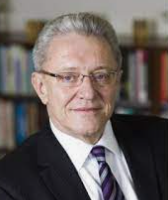
Our standing on the shoulders of our mentors is one way the saints of the church keep advancing the gospel. They get into our DNA and nudge us towards God’s kingdom. For me, thanks to Wentzel, that means we will always place a premium on relationships, especially between church leaders and scientists, and, in doing so, pursue a stronger church through the faithful reading of both of God’s books.
Drew Miller’s reflection can be found here: https://scienceforthechurch.org/2022/03/08/in-our-dna-j-wentzel-van-huyssteen/
****************************************************************************************************
Ancient DNA helps reveal social changes in Africa 50,000 years ago that shaped the human story by Elizabeth Sawchuk at the University of Alberta, Jessica Thompson at Yale University, and Mary Prendergast at Rice University.
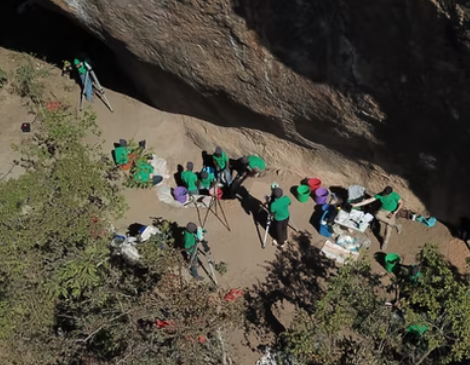
As always, aDNA research raises as many questions as answers. Finding central African ancestry throughout eastern and southern Africa prompts anthropologists to reconsider how interconnected these regions were in the distant past. This is important because central Africa has remained archaeologically understudied, in part because of political, economic, and logistical challenges that make research there difficult.
Additionally, while genetic evidence supports a major demographic transition in Africa after 50,000 years ago, we still don’t know the key drivers. Determining what triggered the Later Stone Age transition will require closer examination of regional environmental, archaeological and genetic records to understand how this process unfolded across sub-Saharan Africa.
This study is a stark reminder that researchers still have much to learn from ancient individuals and artifacts held in African museums, and highlights the critical role of the curators who steward these collections. While some human remains in this study were recovered within the past decade, others have been in museums for a half-century.
https://www.inverse.com/science/ancient-dna-living-locally?fbclid=IwAR0Va9QWHNAP2dK89oTvTfDEpkHAqu_WNC-0Ak-rID_c81hF0UdgEouZ9Ig
****************************************************************************************************
Scientists have created the first-ever worldwide family tree
They used DNA from 3,600 people to figure out how we’re all related. By Grant Currin

The sequencing of modern and ancient genomes from around the world has revolutionized our understanding of human history and evolution. However, the problem of how best to characterize ancestral relationships from the totality of human genomic variation remains unsolved. Here, we address this challenge with nonparametric methods that enable us to infer a unified genealogy of modern and ancient humans. This compact representation of multiple datasets explores the challenges of missing and erroneous data and uses ancient samples to constrain and date relationships. We demonstrate the power of the method to recover relationships between individuals and populations as well as to identify descendants of ancient samples. Finally, we introduce a simple nonparametric estimator of the geographical location of ancestors that recapitulates key events in human history.
